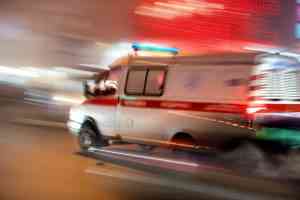
No matter how much parents in California want to believe that their teen drivers will be safe when on the road unsupervised, accidents happen. In fact, according to the Centers for Disease Control and Prevention, teen drivers have a three times higher risk of being killed in a crash than drivers 20 years old and older. Per mile they drive, those who are ages 16 and 17 are three times more likely to be in a crash than drivers 18 and 19 years old.
Although a lack of skill may be one of the major contributors to the higher rates of crashes and fatalities, even the most responsible driver could be in a collision. KidsHealth.org points out that knowing what to do in the event of a motor vehicle accident is important for teens. The impact often leaves drivers shaken and unable to think clearly, but parents can help teens overcome these initial overwhelming sensations with some preparation ahead of time.
The first step is to take a moment to breathe and take stock of the health status of everyone in the vehicle. If possible, the vehicle should be moved out of the way of oncoming traffic. A teen’s vehicle should have an emergency kit in it that includes some kind of visibility aid such as flares or warning triangles to alert other drivers to the disabled car. These should be set up immediately following the accident, if possible, whether the vehicle is unable to be moved or it has been pulled over to the shoulder of the road.
Immediate medical emergencies require a 911 call. If everyone seems to be okay, the teen should notify police, and then get the other driver’s license number, and contact and insurance information. He or she should take pictures and get witness contact information, as well as ask for a copy of the police report. The teen should not apologize for the accident or in any other way admit fault or accept the blame while at the scene of the collision.
Even if a teen is not injured, he or she may still feel emotional, anxious or angry in the days that follow. Parents should watch for these symptoms and others that may indicate that a teen needs to speak to a doctor or therapist about psychological trauma relating to the accident.
